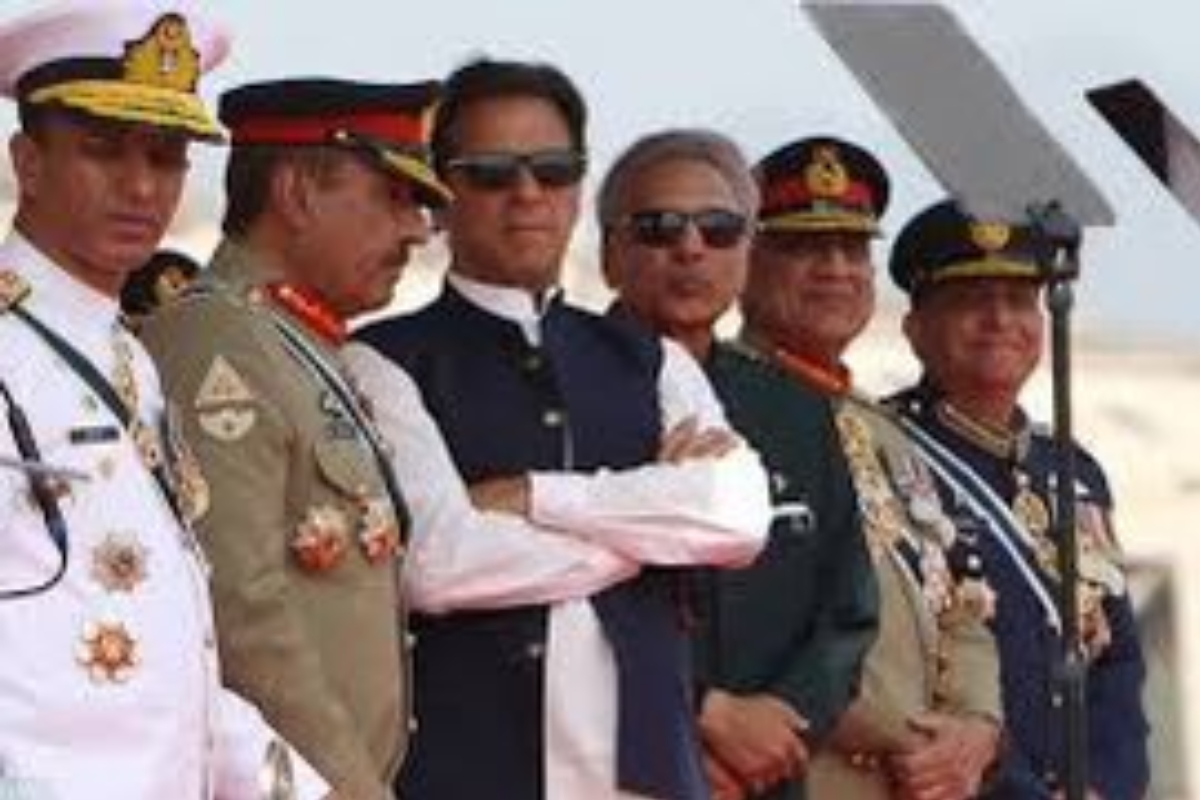Pakistan is in great turmoil following former prime minister Imran Khan’s arrest on Tuesday. Violent demonstrations erupted in most major cities in Pakistan’s Punjab and NWFP provinces soon after news of the arrest spread.
Such things have happened before in that increasingly volatile country – for instance, when another former prime minister (former president too) Zulfikar Ali Bhutto was arrested and then hanged, or when his daughter Benazir was assassinated in 2006.
What’s different this time is that the Army is under direct attack. Khan had already targeted the very heart of Pakistan’s real establishment, the ISI. Khan named Major General Faisal Naseer, a top ISI officer, as the one who had tried to have him (Khan) assassinated, and had organised the assassination of renowned Pakistani journalist Arshad Sharif too.
Unprecedented rift in the army
What makes this situation even more challenging is the apparent rift within the army, which has been evident since General Asim Munir succeeded his mentor, General Qamar Javid Bajwa, at the end of November 2022.
This is unprecedented. Whenever a new chief has taken charge in the past, the extraordinarily powerful army has generally fallen in line.
Superseded generals have resigned, which has made it easier for the new chief to achieve cohesion. But, this time, one who had not been superseded – Lt Gen Faiz Hamid, who had been powerful when he was the ISI chief – promptly put in his papers when Munir was appointed.
This raises the possibility of differences regarding strategy and tactics – if not a revolt – within the ranks of the army. One must wonder if some of the army may be reluctant to continue to act tough against protestors.
Khan had openly declared his wish to be involved in the appointment of the new chief, even while in opposition, but was turned down.
Chess moves gone wrong
This face-off is particularly piquant in that the army is believed to have been instrumental in helping Khan on his road to power.
By the time he retired, Bajwa was perhaps all too keenly aware that his moves on the chessboard of politics had been checked. He said in a farewell speech that, “the constant meddling by the army in politics for the last 70 years… is unconstitutional. That is why, since February last year, the military has decided it will not interfere in any political matter.”
But walking away from a situation it had contrived but which had gone awry was easier said than done. Bajwa left Pakistan with an unstable coalition government, a powerfully popular and wounded mass leader, and a seemingly divided army.
As an article in Al Jazeerah remarked when Bajwa retired: Bajwa’s abiding legacy will be the “internal rifts” within the army, which has been viewed as the most disciplined institution in the country.
In case Bajwa had begun to see himself as something of a Frankenstein, his creature had transformed into the beloved of the masses and was unafraid to target his one-time mentor.
Direct challenge
By placing paramilitary commandoes in the forefront to arrest Khan, the army no doubt hoped to deflect focus from itself, but demonstrators directly and openly attacked the army.
Within hours after Khan’s arrest, demonstrators even set fire to Jinnah House on the iconic Mall Road in Lahore, the Corps Commander’s residence. A vast gate near the General Headquarters (GHQ) in Rawalpindi was also breached.
This is quite amazing, for the Pakistan Army has been pretty much sacred in the country. All-powerful too, for serving and retired officers dominate various aspects of civilian life, including water works, and control vast tracts of land.
On Wednesday, ordinary people were talking of the rot of the 75 years of Pakistan’s existence, and of being held hostage (to the army’s control fetish).
No doubt, many army personnel must feel uneasy about their role and probably their place in history – in case they think that far.
Widespread violence
In addition to attacks on the army, there was a report on Tuesday night that a Radio Pakistan building was in flames. An ambulance was set alight on the streets of Peshawar as rumours swirled that ambulances were ferrying security personnel and ammunition. On Wednesday morning, most shops across the country were shut.
It should have been expected that the public would respond angrily if the very popular Imran Khan was arrested. But the army probably did not expect that the response would directly target them – even at the top of the military hierarchy.
The army’s top brass was called to a strategy session late on Tuesday evening, and martial law seemed very much on the cards. A question mark nevertheless hung over whether they would be able to quell the widespread public anger.
So far, everything that has been done to sideline Khan has backfired, only strengthening his image in the public imagination. This is despite the fact that the coalition that replaced him is on the same page as the army, at least with regard to Khan.
The range of moves against Khan since he lost power a little more than a year ago has aimed to prevent him from galvanising the public to push forcefully for fresh elections.
Khan, who had tried to have elections called when he was ousted, appears confident that he would win in a landslide. Recent by-elections in Punjab indicated that that expectation is well-founded.
David Devadas is a journalist and security, politics and geopolitics analyst.
Disclaimer: Views expressed above are the author’s own










